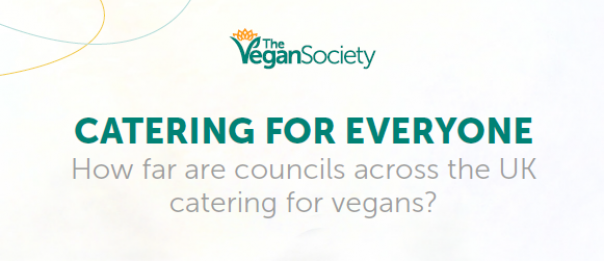
The society says that in the UK veganism is recognised as a protected belief and councils have a legal responsibility to provide adequate options for those who choose to live a vegan lifestyle.
And to drive home the findings of the report, it has created a heatmap of the UK, showing which local authorities are leading the way and which are falling behind.
The map shows Oxfordshire, Edinburgh and Richmond upon Thames are leading the way in the country, while the Orkney Islands, Barnet and North Somerset are among those falling behind.
The Vegan Society says that although 40% of consumers say they want plant-based alternatives and the vegan food market has being growing almost 10% over the last year, vegans continue to face challenges accessing healthy, nutritious food, with public sector menus frequently failing to consistently include a single vegan option.
It points out that in addition to their legal responsibility to cater for vegans, the National Food Strategy has recommended that local authorities act to promote sustainable diets in order to reduce emissions in response to the climate crisis.
“Moving away from animal products is an essential step in achieving this, with plant-based diets producing just 25% of the emissions compared to one that includes meat,” says the report.
“With the number of vegans in the UK continuing to grow and urgent action needed to meet climate reduction obligations, there has never been a more important time for public sector menus to offer a range of healthy, vegan options. The personal impact of councils failing to adequately cater for plant-based diets is very real.”
The report cites a vegan councillor on Croydon Council commenting on the findings: “The catering for vegans at Croydon Council is frustratingly poor. There’s a lot of people working at the council who – like me – are doing their best to make choices that limit our impact on the climate, while respecting animal rights and welfare.
“It can be a real struggle when public bodies – like local councils – aren’t even getting the basics right. If they were, far more people would feel empowered to make ethical and sustainable choices.”
The Vegan Society says that some councils do not recognise their legal obligation to take vegans into account. Of the local authorities who gave at least partial answers to the society’s information requests, 54 did not acknowledge veganism as a protected characteristic.
To give one example, Orkney Council claimed ‘[We] do not have any vegan diets to cater for […] as Orkney is vastly farming community’.
“While there may not be vegans working within the council, it has a responsibility to consider all of the community who might use its services such as schools, care homes or leisure centres. There are certainly vegans on Orkney; several are even members of The Vegan Society.”
The picture is mixed, though, with the report finding several councils going above and beyond their legal requirements. The catering at Oxfordshire’s external meetings, for example, is completely plant-based, whilst one third of meals in the local primary schools are vegan.
In addition, Oxfordshire County Council and Edinburgh City Council have signed the Plant Based Treaty, which puts food systems at the heart of tackling the climate crisis, whilst other local authorities have detailed their climate action plans, which include commitments to reducing meat and dairy consumption.